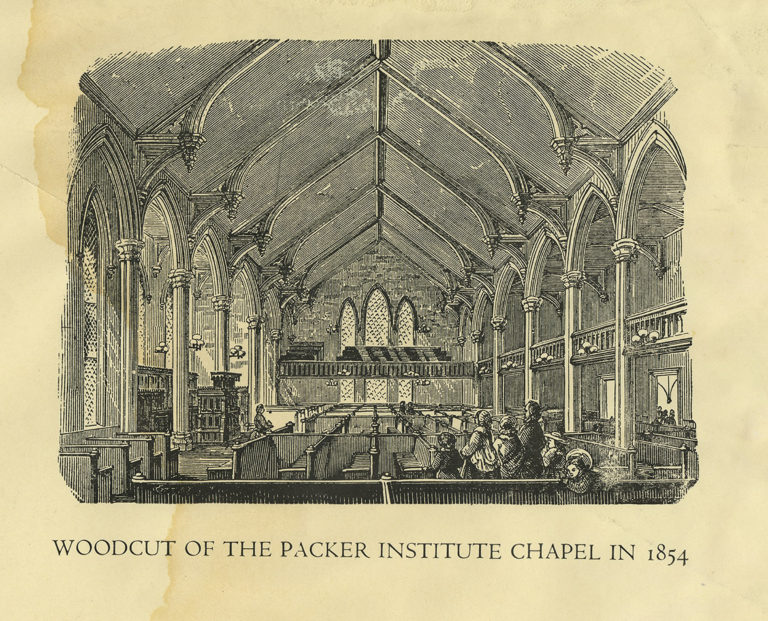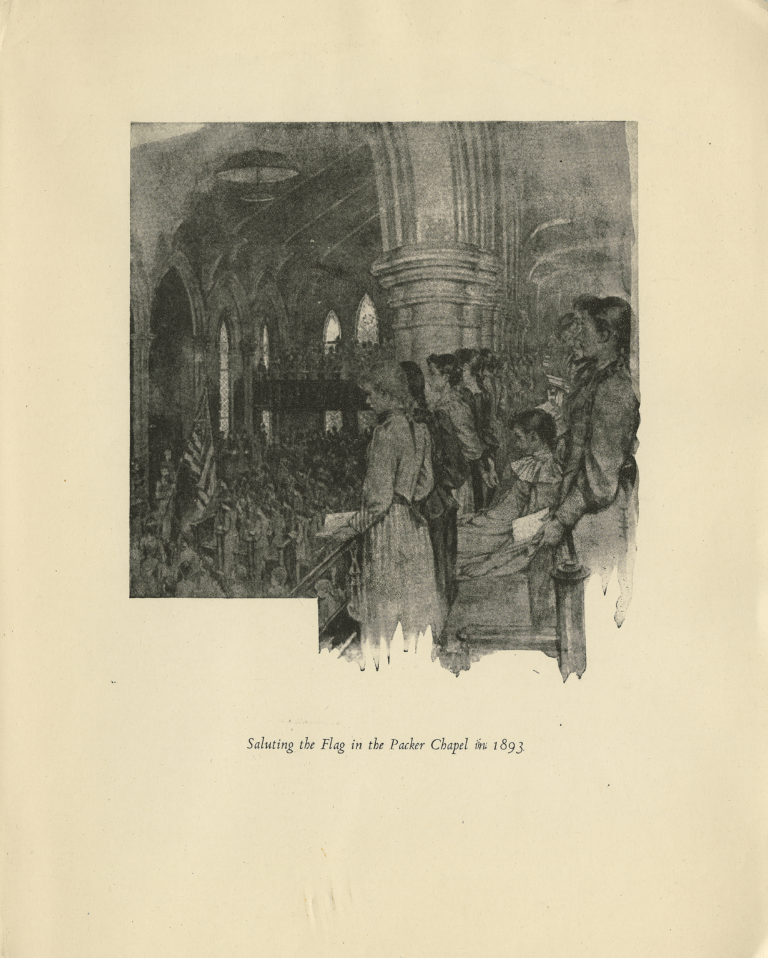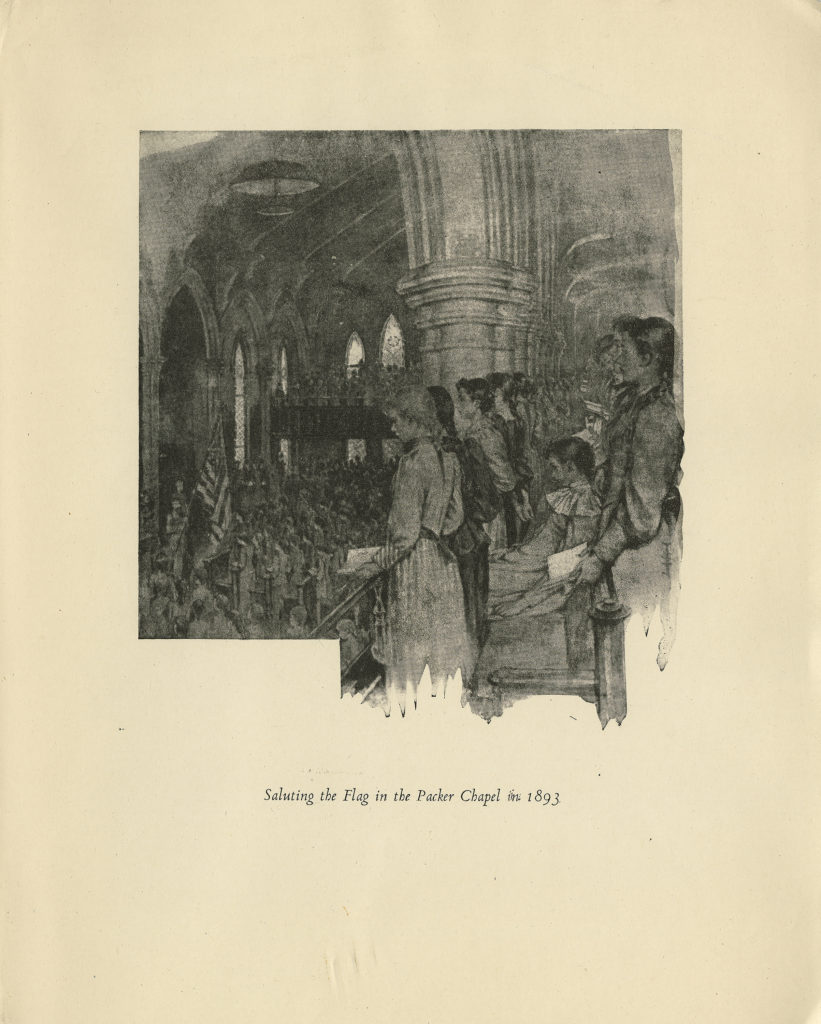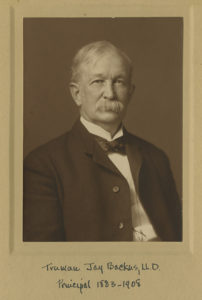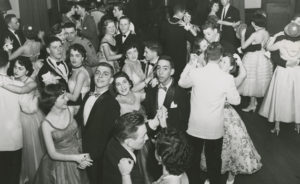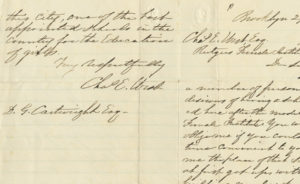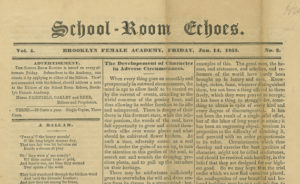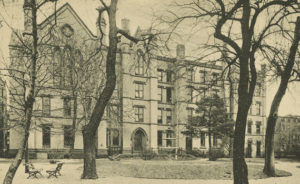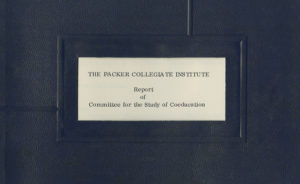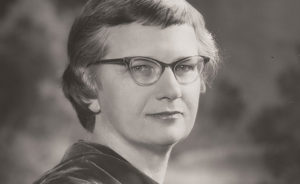Religion at The Packer Collegiate Institute
The Brooklyn Female Academy (BFA) was founded at a time of religious transformation in America.
The Second Great Awakening during the early- to mid-nineteenth century and the Social Gospel Movement during the early-twentieth century provided a moral justification for educating young women. These movements extolled the virtues of women and their sacred role in raising the next generation, but they also provided a space for women in the public sphere as moral authorities in a number of reform movements, including prohibition and efforts to alleviate urban poverty. It was recognized that as both mothers and reformers, women could benefit from improved educational opportunities.
As was common in nineteenth-century American schools, the curriculum at BFA was infused with religious teaching, a tradition that remained as BFA transitioned to The Packer Collegiate Institute. Prayer and sermons were held in the school’s chapel. Religious studies were introduced into the curriculum during a student’s first years. The primary department included classes on the New Testament, while older students were taught natural theology.
Under the leadership of Dr. Truman J. Backus in the 1890s, religious education at Packer changed somewhat. Backus was influenced by contemporary theorists like Matthew Arnold, who emphasized ethics and conduct over the orthodoxies of the Christian faith. In 1884, multiple courses in religion were consolidated down to one course in natural theology. By 1890, even this course had been abandoned.
